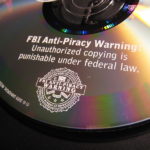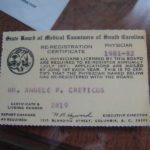Farmers markets have caught on in cities since the 1970s, and governments played a major role in their growth. Why? Because city officials learned these markets not only made residents healthy and happy … but offered other “positive externalities.”
Main Content
In 1986, President Ronald Reagan told a joke. “The nine most terrifying words in the English language,” he said, “are, I’m from the government and I’m here to help.” It was a good joke, and Reagan, a veteran performer, told it well.
But Reagan’s joke raises a question for us today: What HAS come from the government that helps us be healthier, more productive, and better educated . . . or makes our lives safer and fairer? This website will look for specific things local and state governments and the federal government have done to help most of us.
Some of these will be obvious, like national defense, fire protection, and the courts. Some, like the 30-year mortgage and nuclear waste disposal, may surprise you. (Well, whom did you think would assume the task of guarding highly dangerous materials that could threaten us for a thousand years?)
The point isn’t to defend all that governments have ever done but to add a little perspective to the cynical belief that government always favors insiders and, when it doesn’t, is inept or incompetent. In fact, you may be surprised as you read these entries to find governments are at work everywhere in your life, doing precisely the things you want them to do and doing them surprisingly well.
On a regular basis, we’ll add examples of government programs that have helped most of our citizens. The entries will explain why government was asked to do this work, how the programs were created, and describe the results. We’ll have links so you can dig deeper for yourself. In each case, we’ll tell you which governments—local, state or federal—deserve the credit. (You may be surprised in some cases at how mixed the credit is, which means that federalism really does work.)
Not convinced? Great. Click a link and read on . . .

Patents, Copyrights, and Trademarks
The federal government helps businesses protect their innovations and creative works through patents and copyrights, and their reputations through trademarks. Why does it do this? For the same reason state and local governments protect citizens’ ownership of cars and homes. It ensures peace and prosperity. What’s new is that the federal government’s role in protecting “intellectual property” is growing. And businesses are all for it.

The Postal Service
The U.S. Postal Service is losing billions each year, partly because of changes in how we communicate and partly because of bad laws. But the trouble really began in 1970, when Congress told the Post Office to start acting like a business. Turns out, the Postal Service isn’t a business, and most Americans would be outraged if it ever acted like one.

Consumer Product Safety
In 1972 the federal government created a new agency, the Consumer Product Safety Commission, and gave it an impossible task: make hundreds of thousands of consumer products, from children’s sleepwear and bedding to hand tools and recreational vehicles, safer. Here’s how the CPSC succeeded by focusing on the most troublesome products, keeping a watchful eye on others, and using a “trust but verify” approach.

Workplace Safety
Until the 20th century factory, railroad, and mine work was nasty and brutish, and the lives of workers were frequently short. Gradually, governments brought humane processes and healthier working conditions to the private sector. Here’s how they did it in three large waves of reform.

Dependable Insurance
Insurance is critical to our economy and our lives and, taken as a whole, surprisingly big. Americans spend nearly as much each year on insurance coverage as on food. But insurance rests on a promise that, if the worst happens, you will be protected. Why should we believe that promise? Because for nearly 200 years, state governments have audited insurance companies’ books and watched their payment records to be sure they keep their word.

Food and Drug Safety
The human lifespan has doubled in the past century, and a big part of the reason is that we have safer, more effective drugs and cleaner processing of meat, poultry, and vegetables. In the United States, ensuring these things belongs almost exclusively to the federal government. Looking back, what’s surprising is what a struggle it was to get reasonable food and drug regulation. But now that we see the results, let’s take a moment to thank government for them.

Professional Licenses
State governments began licensing doctors, lawyers, engineers, and other professionals in the late 1800s. They did it because colleges were turning out highly trained people who found themselves surrounded by con artists and quacks. The professionals turned to the states for help. In the century and a half since, licensing has raised professional standards and given us some assurance that those we depend on for expert advice are trained and acting in our best interests. For this, we can thank government.

Public Television and Radio
Fifty years ago the federal government created the Public Broadcasting System and National Public Radio and gave them the mission of educating children and informing adults over the public airwaves. PBS went on to become the most trusted institution in America, one offering resources rivaling those of great museums. It delivers its acclaimed programs coast to coast at no cost to viewers and small cost to taxpayers. Here’s how two government-supported organizations educated and informed millions at the flick of a switch.

The Internet
The most transformative technology of our era started out as a government project and was supported mostly by government funds until it was discovered by businesses in the 1990s. Here’s how the internet became the preferred way of connecting computers and creating an online world, why this government creation beat out private competitors, and what it tells us about the role governments play in economic development.
